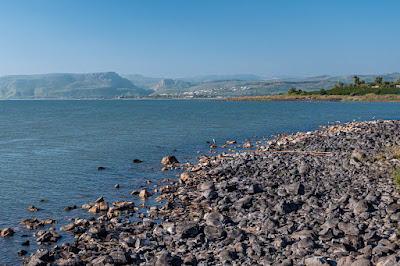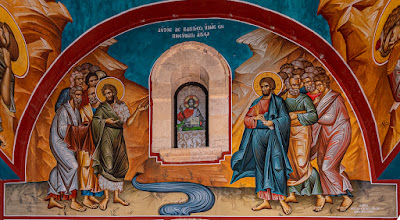Wordle has become a fun distraction on the web. If you've somehow missed it, it's like the old Mastermind game where you try to guess a five letter word in six tries. You get hints after each guess whether you got the right letter or not and in the right spot or not. There is a new word each day, so it's not some deep hole on the web you'll get sucked into that will take up all your time.
And now... the amazing James Tauber has created a Greek New Testament Wordle! It works on the same principles. Do note that you can't type in the letters. Use the keyboard at the bottom. Also note that the words are all words in the actual GNT text. (I.e., all the inflected forms, not lexical ones.) Like regular Wordle, it will tell you if your guess is not in the word database. (Don't forget to use final sigma.) Tauber says that, "with case-folding and diacritic removal but with movable ν and ς supported, there are 1,444 five-letter words in the SBLGNT main text" available.
So I'm going to use it and encourage my students to use it simply as a way to keep Greek in front of them. Every little bit helps!
This will also give you an excuse to use your Bible software. E.g., in Accordance, do a search on the Greek text for "?????" using the quotation marks. Then open an Analysis tab. Then click on the customize gear in upper right. Drag over INFLECT and delete LEX. There's your list of 5 letter words in the GNT! Have fun!
Some of my former students who are still using the venerable BibleWorks program were wondering how to get the list of words.
In the command line:
BNT < BNT will only give NT words which is what you want
.????? < That will give you all five letter Greek words; to see the list:
Tools > Analyzing the text > Word List Manager
Load or Generate List
Load highlighted words from last query / Verse Range Reset > Create list
There's your list of 1596 possible words!
If you need more help, and, e.g., you know the last letters are omicron and nu
One more thing: final sigma is regarded as a different letter than regular sigma.




